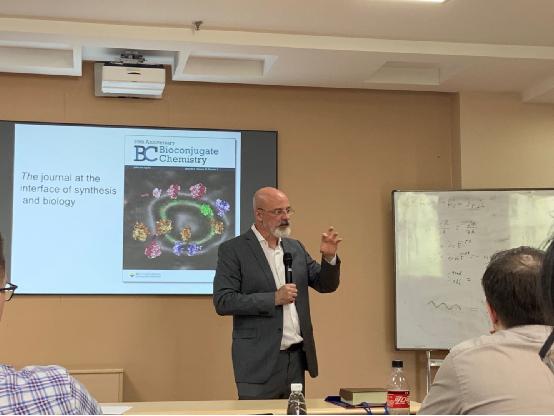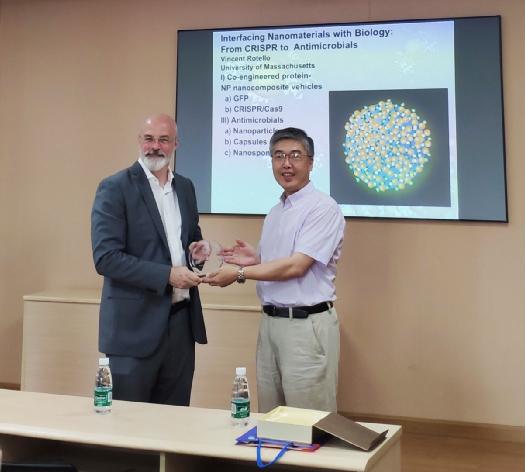As an important breakthrough in the interfacing of nanomaterials and biology, gold nanoparticles are found capable of delivering proteins and serving as an effective therapeutic against multiple drug-resistant bacteria, said University of Massachusetts professor Vincent Rotello at the eighth lecture of Nanjing Distinguished Scholars’ Lecture Series on Transformative Science and Engineering (TSE Lectures) on August 21, 2019.

The professor lectured on the interfacing of nanoparticles with biosystems with a focus on the application of self-assembled nanoparticles as delivery vehicles.
He demonstrated that when gold nanoparticles are made biocompatible, co-engineered proteins and nanoparticles provide hierarchical self-assembly and cytosolic delivery of proteins. He showed the delivery of CRISPR-Cas 9 systems into the cytosol for efficient gene-editing both in vitro and in vivo.
He argued that nanoparticles can be used as therapeutics against multiple drug-resistant bacteria because cationic nanoparticles provide effective antimicrobials and can penetrate biofilms, providing a potential strategy for combatting this emerging threat.
Professor Rotello has titles of the Charles A. Goessmann Professor and University Distinguished Professor at University of Massachusetts at Amherst. He is also Editor-in-Chief of Bioconjugate Chemistry.
At the end of his lecture, titled “Interfacing Nanomaterials with Biology: From CRISPR to Antimicrobials,” he answered the questions raised by teachers and students from Nanjing University and other universities.
The lecture was chaired by Professor Wei Hui, from Department of Biomedical Engineering, Nanjing University.
Mr. Zang Wencheng, CPC committee secretary of the university’s College of Engineering and Applied Sciences, presented a TSE Lecture souvenir to Professor Rotello.

The lecture was held in Cyrus Tang Building of Nanjing University.